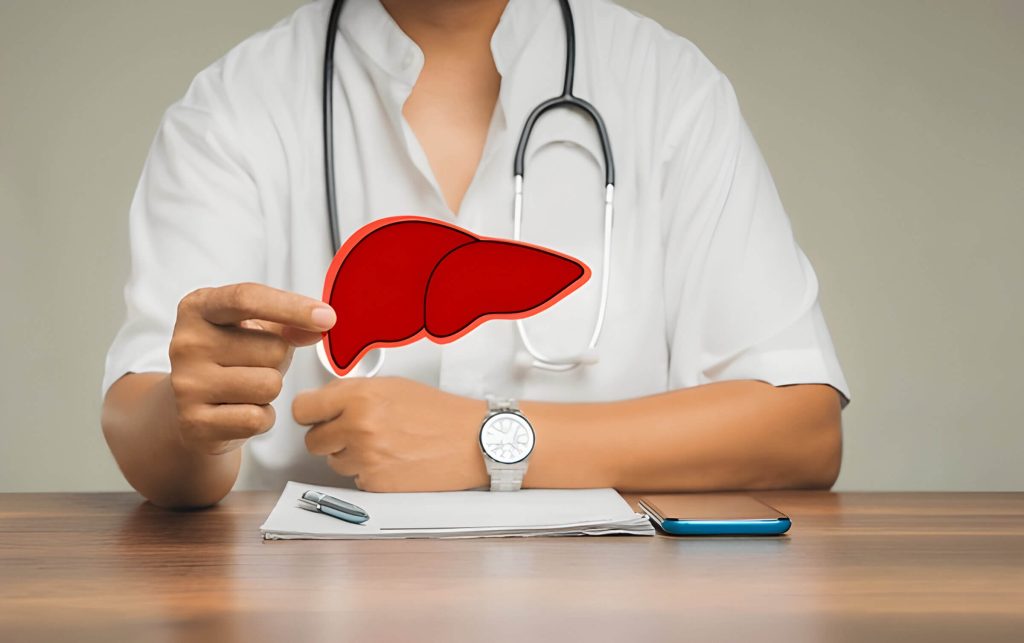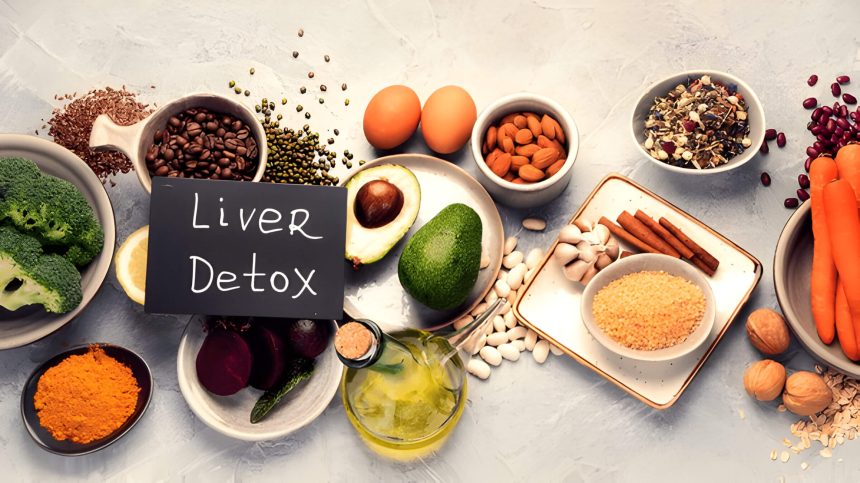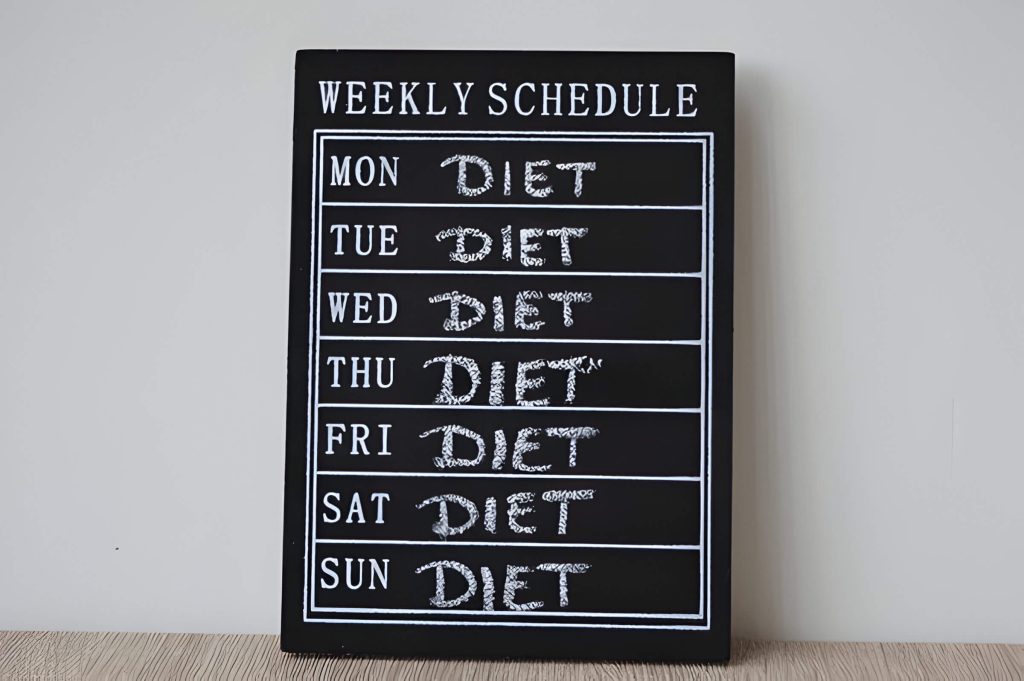The liver, a powerhouse organ in the human body, plays a pivotal role in maintaining our overall health and well-being. As our natural detoxification center, it tirelessly filters blood, aids digestion, and processes nutrients and toxins. This article explores the concept of a 7-day liver cleanse diet, designed to support and enhance the liver’s vital functions. From understanding the science behind liver cleansing to providing a day-by-day breakdown of the diet, we’ll delve into the foods to embrace, habits to avoid, and lifestyle changes that can contribute to optimal liver health.
Understanding the Importance of Liver Health
The liver plays a crucial role in maintaining overall health, serving as the body’s primary detoxification center. This vital organ is responsible for filtering toxins from the blood, producing essential proteins, and regulating metabolic processes. Understanding the importance of liver health is key to preventing liver diseases and maintaining optimal bodily functions.
One of the liver’s primary functions is toxin elimination. It processes harmful substances, including alcohol, medications, and environmental pollutants, converting them into less harmful compounds that can be safely excreted from the body. This detoxification process is essential for protecting other organs and maintaining overall well-being.
The liver also plays a significant role in metabolic health. It helps regulate blood sugar levels, produces bile for fat digestion, and stores essential vitamins and minerals. A healthy liver contributes to better energy levels, weight management, and hormonal balance.
Maintaining liver health through a balanced diet, regular exercise, and limiting alcohol consumption can significantly reduce the risk of liver diseases such as fatty liver, cirrhosis, and hepatitis. Regular check-ups and liver function tests can help detect potential issues early, allowing for timely intervention and prevention of more serious conditions.
By prioritizing liver health, individuals can support their body’s natural detoxification processes, enhance metabolic function, and promote overall wellness, leading to a healthier, more vibrant life.
The Science Behind Liver Cleansing

The liver is a remarkable organ with intricate detoxification pathways that naturally cleanse our bodies. Hepatic metabolism plays a crucial role in processing toxins, drugs, and other harmful substances. The liver employs a two-phase detoxification system, with Phase I involving cytochrome P450 enzymes that transform toxins into less harmful compounds, and Phase II conjugating these intermediates for safe elimination.
Natural liver cleansing mechanisms are supported by antioxidants, which protect liver cells from oxidative stress. Key antioxidants include glutathione, vitamin C, and vitamin E. Additionally, liver-supporting nutrients such as B-vitamins, selenium, and zinc are essential for optimal liver function.
To enhance the liver’s natural cleansing abilities, it’s important to maintain a balanced diet rich in fruits, vegetables, and whole grains. These foods provide necessary fiber and phytonutrients that aid in toxin removal. Staying hydrated is also crucial, as water helps flush out toxins and supports overall liver health.
While “liver cleanses” are popular, it’s important to note that a healthy liver doesn’t require extreme measures. Instead, focus on supporting your liver’s innate detoxification processes through a nutritious diet, regular exercise, and avoiding excessive alcohol consumption and environmental toxins.
Potential Benefits and Side Effects of a Liver Cleanse Diet
A liver cleanse diet may offer several potential benefits for overall health and well-being. Many individuals report experiencing increased energy levels, improved digestion, and clearer skin after following such a regimen. Some people also notice weight loss as a result of adopting a liver-friendly diet and lifestyle.
However, it’s important to be aware of possible side effects associated with liver cleanse diets. Some individuals may experience detox symptoms, such as headaches, fatigue, or nausea, especially in the initial stages of the cleanse. These symptoms are often temporary and may subside as the body adjusts to the new diet.
Before embarking on any liver cleanse program, it’s crucial to consult with a healthcare provider. They can assess your individual health needs, potential risks, and provide personalized guidance. This is particularly important for individuals with pre-existing health conditions or those taking medications that may interact with dietary changes.
Preparing for Your 7-Day Liver Cleanse Diet
Before embarking on your 7-day liver cleanse diet, proper preparation is key to ensure success. Start by creating a comprehensive grocery list that includes fresh fruits, vegetables, lean proteins, and whole grains. Stock up on kitchen essentials such as a high-quality blender for smoothies, glass containers for meal prep, and a water bottle to track hydration.
Meal planning is crucial for a smooth cleanse experience. Take time to research and compile liver-friendly recipes that align with your dietary restrictions. Prepare some meals in advance to save time and reduce stress during the week.
Hydration plays a vital role in any cleanse, so invest in a large water pitcher or filtered water system. Aim to drink at least 8-10 glasses of water daily, and consider incorporating herbal teas known for their liver-supporting properties.
Lastly, gradually reduce your intake of processed foods, caffeine, and alcohol in the days leading up to your cleanse. This pre-cleanse preparation will help your body adjust more easily to the new diet and maximize the benefits of your liver cleanse.
Day-by-Day Breakdown of the 7-Day Liver Cleanse Diet
Day 1 Liver Cleanse Diet
Begin your liver cleanse with a nutrient-rich breakfast of oatmeal topped with berries and a sprinkle of flaxseeds. For lunch, enjoy a large mixed green salad with lean protein like grilled chicken. Dinner consists of steamed vegetables and baked fish. Throughout the day, sip on detox water infused with lemon and cucumber.
Day 2 Liver Cleanse Diet
Start with a green smoothie packed with spinach, banana, and chia seeds. Lunch features a quinoa bowl with roasted vegetables and avocado. For dinner, prepare a hearty lentil soup. Incorporate dandelion tea as your afternoon beverage to support liver function.
Day 3 Liver Cleanse Diet
Breakfast is a vegetable omelet with herbs. At lunch, savor a colorful Buddha bowl with brown rice, steamed broccoli, and chickpeas. Dinner includes grilled tofu with a side of sautéed kale. Drink plenty of water and enjoy a mid-day glass of beet juice.
Day 4 Liver Cleanse Diet
Begin with whole grain toast topped with mashed avocado and cherry tomatoes. Lunch consists of a large mixed bean salad. For dinner, indulge in a small portion of lean grass-fed beef with roasted sweet potato and asparagus. Sip on milk thistle tea in the evening.
Day 5 Liver Cleanse Diet
Start your day with a bowl of Greek yogurt, topped with fresh berries and a drizzle of honey. Lunch features a warming vegetable soup with a side of whole grain crackers. Dinner includes baked salmon with quinoa and steamed green beans. Incorporate a turmeric latte as your afternoon drink.
Day 6 Liver Cleanse Diet
Breakfast is a slice of whole grain bread with almond butter and sliced banana. For lunch, enjoy a large spinach salad with grilled chicken and walnuts. Dinner consists of stir-fried vegetables with brown rice. Throughout the day, sip on green tea.
Day 7 Liver Cleanse Diet
On the final day, start with a fruit salad topped with a handful of pumpkin seeds. Lunch features a whole grain wrap filled with hummus and fresh vegetables. For dinner, prepare a small portion of lean turkey with roasted Brussels sprouts and carrots. End your cleanse with a soothing cup of peppermint tea.
Remember to maintain appropriate portion sizes and ensure a balance of proteins, complex carbohydrates, and healthy fats in each meal. Stay hydrated with water and herbal teas throughout the week to support your liver’s detoxification process.
Foods to Embrace During Your Liver Cleanse
When embarking on a liver cleanse, it’s crucial to focus on nutrient-dense foods that support liver function and detoxification. Cruciferous vegetables, such as broccoli, cauliflower, and Brussels sprouts, are excellent choices due to their high content of glucosinolates, which aid in enzyme production for detoxification. Leafy greens like kale, spinach, and arugula are rich in chlorophyll, helping to neutralize toxins and support liver health.
Citrus fruits, particularly lemons and grapefruits, are valuable additions to your cleanse. They’re high in vitamin C and antioxidants, which boost the liver’s natural cleansing abilities. Lean proteins, such as fish, chicken, and plant-based options like legumes, provide essential amino acids for liver repair and regeneration.
Herbal teas, including dandelion root, milk thistle, and green tea, can be beneficial during your cleanse. These teas contain compounds that support liver function and promote detoxification. Additionally, consider incorporating liver-supporting supplements like N-acetyl cysteine (NAC) or alpha-lipoic acid, but always consult with a healthcare professional before adding any new supplements to your regimen.
By focusing on these liver-friendly foods and beverages, you can optimize your cleanse and support your liver’s vital functions.
Foods and Habits to Avoid for Optimal Liver Health
Maintaining a healthy liver is crucial for overall well-being, and certain foods and habits can significantly impact liver function. To promote optimal liver health, it’s essential to avoid processed foods, which often contain additives and preservatives that strain the liver. Alcohol consumption should be limited or eliminated, as excessive drinking can lead to liver damage and disease. Excessive sugar intake, particularly from sugary beverages and snacks, can contribute to fatty liver disease. Similarly, unhealthy fats found in fried foods and some packaged snacks should be minimized.
Beyond dietary considerations, smoking is detrimental to liver health and should be avoided. A sedentary lifestyle can also negatively impact the liver, so regular physical activity is recommended. By being mindful of these factors and making conscious choices to avoid harmful foods and habits, individuals can support their liver’s vital functions and maintain overall health.
Incorporating Exercise and Lifestyle Changes

While dietary changes are crucial for a liver cleanse, combining them with exercise and lifestyle modifications can significantly enhance the detoxification process. Gentle exercise routines, such as yoga, walking, or swimming, can improve circulation and stimulate the lymphatic system, aiding in toxin removal. Additionally, implementing stress management techniques like meditation or deep breathing exercises can reduce cortisol levels, which may otherwise hinder liver function.
Ensuring adequate sleep is essential for liver health, as the organ performs many of its detoxification processes during rest. Aim for 7-9 hours of quality sleep each night to support your liver’s natural cleansing abilities.
Dry brushing is another beneficial practice that can complement your liver cleanse diet. This technique involves gently brushing the skin with a soft-bristled brush to stimulate lymphatic drainage and promote toxin elimination through the skin.
Consider incorporating sauna therapy into your routine. Regular sauna sessions can induce sweating, which helps eliminate toxins through the skin and supports overall detoxification efforts. However, always consult with a healthcare professional before starting any new exercise or therapy regimen, especially if you have pre-existing health conditions.
Maintaining Liver Health After the 7-Day Cleanse
After completing a 7-day liver cleanse, it’s crucial to focus on maintaining your liver health for the long term. Implementing sustainable lifestyle habits is key to ensuring ongoing liver support. Start by making long-term dietary changes that prioritize whole foods, lean proteins, and plenty of fruits and vegetables. Reduce your intake of processed foods, saturated fats, and added sugars, which can burden the liver.
Staying hydrated is essential for liver function, so continue to drink plenty of water throughout the day. Consider incorporating liver-friendly herbs and supplements, such as milk thistle or dandelion root, into your routine, but always consult with a healthcare professional before starting any new supplement regimen.
Regular exercise is another important factor in maintaining liver health. Aim for at least 150 minutes of moderate-intensity activity per week to help control weight and reduce the risk of fatty liver disease.
Lastly, don’t underestimate the importance of regular check-ups with your healthcare provider. Routine liver function tests can help detect any potential issues early on, allowing for timely intervention and management. By adopting these sustainable lifestyle habits and prioritizing ongoing liver support, you can build upon the benefits of your 7-day cleanse and promote long-term liver health.
Embracing a Liver-Friendly Lifestyle for Long-Term Health
Embracing a liver-friendly lifestyle is not just about following a temporary cleanse or diet; it’s about making sustainable changes that support your liver’s health for years to come. By incorporating nutrient-rich foods, staying hydrated, limiting alcohol consumption, and maintaining a healthy weight, you can significantly improve your liver function and overall well-being.
Remember that your liver plays a crucial role in detoxification, metabolism, and numerous other bodily functions. Taking care of this vital organ through mindful eating habits and lifestyle choices can have far-reaching benefits for your entire body.
While a liver cleanse diet can be a great starting point, the key to long-term liver health lies in consistent, healthy habits. Regular exercise, stress management, and avoiding harmful substances are equally important components of a liver-friendly lifestyle.
Consult with a healthcare professional before making significant changes to your diet or starting any new health regimen, especially if you have pre-existing liver conditions or other health concerns. With the right approach, you can support your liver’s natural detoxification processes and promote optimal health for years to come.

